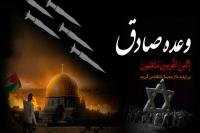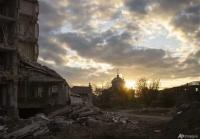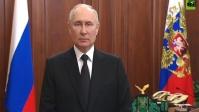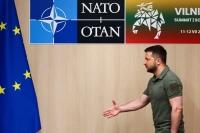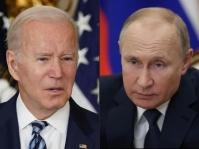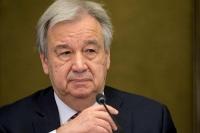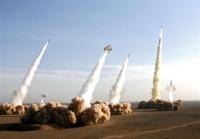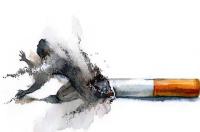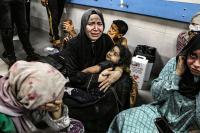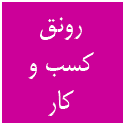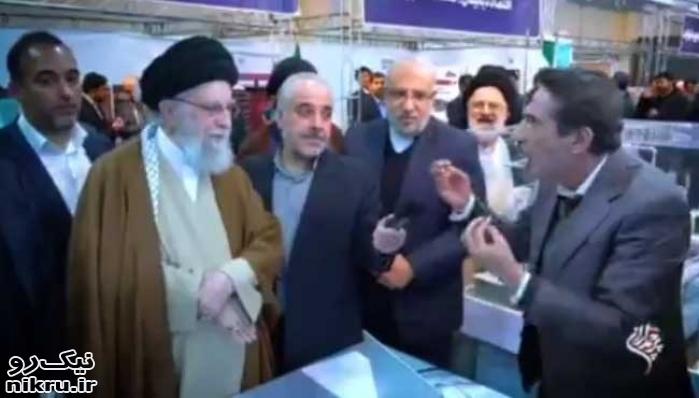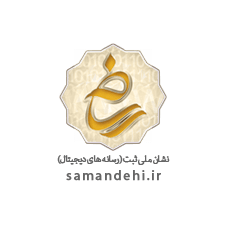- حرکت خوف بلاگر ایرانی علیه یک اسراییلی
- چرا باید پاسخ اسرائیل را در محاسبات آورد و احتمالات چیست؟
- موج جدید اسلامستیزی در بریتانیا؛ شما حق ندارید در مدرسه نماز بخوانید!
- چالش نخست وزیر بریتانیا درپی عدم محکومیت حمله اسرائیل به کنسولگری ایران+ فیلم
- پاسخ سفیر سابق انگلستان به ایرانستیزان + عکس
- بی شرفی به سبک سفیر اسرائیل در مادرید +فیلم
- تصاویری از وضعیت اردوگاه النصیرات در شمال نوار غزه
- نماینده پارلمان انگلیس: نتانیاهو از ترس از سیلی ایران مانند موش در پناهگاه مخفی شده بود+ فیلم
- اقدامات نیروی زمینی سپاه برای کمک به سیلزدگان در سیستان و بلوچستان
- ایرانیان فردا در حمایت از عملیات «وعده صادق» راهپیمایی میکنند
- چرا راه دور میروی؟ وصل اینجاست!
- چرا میگوییم سیلی ایران به اسرائیل خیرهکننده است؟+ فیلم
- مسئولان قضایی در جهت تحکیم آرامش و امنیت مردم تدابیر مقتضی را اتخاذ کنند
- برنامه عملیاتی تحقق شعار سال به تصویب هیات وزیران رسید
- عضویت فلسطین در سازمان ملل را به رسمیت میشناسیم
- درخواست روسیه از شورای امنیت برای بررسی فوری تحریم اسرائیل
- عملیات وعده صادق توانمندی ایران را در یک جنگ ترکیبی نشان داد
- هشتهزار مگاوات برق برای جبران ناترازی وارد مدار شده است
- رگبار و وزش باد شدید در ۴ استان کشور/ دریای عمان امروز مواج است
- شاخه های اساسی تحولات فلسطین که زیاد به آن پرداخته نشد
- حامیان فلسطین خطاب به رئیس کمیسیون اتحادیه اروپا: شما یک جنایتکار هستید+ فیلم
- وضعیت پرتنش خاورمیانه بدون تغییر
- بَد و بَدتر برای اسرائیل
- جنگ غزه در چه وضعی است؟
- فکر و ذکر بایدن مقابله با چین در جنگ تجاری است
- پاسخ اسرائیل چگونه خواهد بود؟
- جنگ با حزب الله؛ جنگی که موجودیت اسرائیل را به خطر می اندازد
- حمله ایران به اسرائیل؛ یک دلگرمی برای جبهه مقاومت+ فیلم
- اولین پیام السنوار بعد از حمله اسرائیل به غزه، چه بود؟ فیلم
- تاریخ پرشکوه ایران، مشحون از صفحات زرین ایثار غیور مردان ارتش است
آیا پوتین با حمله به اوکراین در پی بازگرداندن امپراتوری روسیه است؟
 در مارس و آوریل 2021، نیروهای مسلح روسیه شروع به جمع آوری هزاران پرسنل و تجهیزات نظامی در نزدیکی مرز روسیه با اوکراین و در کریمه کردند که نشان دهنده بزرگترین بسیج از زمان الحاق کریمه در سال 2014 است.
در مارس و آوریل 2021، نیروهای مسلح روسیه شروع به جمع آوری هزاران پرسنل و تجهیزات نظامی در نزدیکی مرز روسیه با اوکراین و در کریمه کردند که نشان دهنده بزرگترین بسیج از زمان الحاق کریمه در سال 2014 است.
پايگاه خبري تحليلي «نيک رو»، در مارس و آوریل 2021، نیروهای مسلح روسیه شروع به جمع آوری هزاران پرسنل و تجهیزات نظامی در نزدیکی مرز روسیه با اوکراین و در کریمه کردند که نشان دهنده بزرگترین بسیج از زمان الحاق کریمه در سال 2014 است.(1) و (2) این یک بحران بینالمللی را به دلیل نگرانی در مورد تهاجم احتمالی تسریع کرد. تصاویر ماهوارهای حرکات زره، موشک و تسلیحات سنگین را نشان داد.(3) و (4) نیروها تا ژوئن 2021 تا حدی از آن خارج شدند، (5)اگرچه زیرساختها در محل باقی مانده بودند. دومین آماده سازی در اکتبر 2021 آغاز شد، این بار با سربازان بیشتر و با استقرار در جبهههای جدید. تا دسامبر بیش از 100000 سرباز روسی در اطراف اوکراین از سه طرف جمع شدند.(6) با وجود تقویت نظامی روسیه، مقامات روسیه از نوامبر 2021 تا 20 فوریه 2022 مکرراً طرح روسیه برای حمله به اوکراین را رد کردند. (7) و (8)
این بحران مربوط به جنگ جاری در دونباس، که خود بخشی از جنگ روسیه و اوکراین است، از سال 2014 ادامه دارد. در دسامبر 2021، روسیه دو پیش نویس معاهده را ارائه کرد که شامل درخواستهایی برای آنچه از آن به عنوان "ضمانتهای امنیتی" یاد میشود، شامل یک اصل و امر قانونی بود. وعده الزام آور مبنی بر عدم پیوستن اوکراین به سازمان پیمان آتلانتیک شمالی (ناتو) و کاهش نیروها و تجهیزات ناتو مستقر در شرق اروپا، و تهدید به واکنش نامشخص نظامی در صورت عدم تحقق کامل این خواستهها. ناتو این درخواستها را رد کرد و ایالات متحده به روسیه درباره تحریمهای اقتصادی «سریع و شدید» در صورت حمله بیشتر به اوکراین هشدار داد. (9) این بحران توسط بسیاری از مفسران به عنوان یکی از شدیدترین بحرانها در اروپا از زمان جنگ سرد توصیف شد.(10) و (11)و (12) فیونا هیل، تحلیلگر امور بینالملل، بعداً در 28 فوریه 2022 اظهار داشت که حمله روسیه به اوکراین نشانه دیگری از آغاز جنگ جهانی سوم بود.(13)
در 21 فوریه 2022، روسیه رسما دو منطقه جدا شده در شرق اوکراین، جمهوری خلق دونتسک و جمهوری خلق لوهانسک را به عنوان کشورهای مستقل به رسمیت شناخت، (14) و نیروهای خود را در دونباس مستقر کرد، در اقدامی که به عنوان خروج موثر روسیه از مینسک تفسیر شد. پروتکل.(15) و (16) جمهوریهای جداشده در مرزهای استانهای اوکراینی مربوطه خود، که بسیار فراتر از خط تماس است، به رسمیت شناخته شدند.(17) در 22 فوریه، پوتین گفت که قراردادهای مینسک دیگر معتبر نیستند.(18) در همان روز، شورای فدراسیون به اتفاق آرا اجازه استفاده از نیروی نظامی در مناطق را صادر کرد. (19)
در صبح روز 24 فوریه 2022، پوتین اعلام کرد که روسیه در حال آغاز یک "عملیات نظامی ویژه" در دونباس میباشد و تهاجم تمام عیار به اوکراین را آغاز کرده است. (20) و (21)
پس از انحلال اتحاد جماهیر شوروی در سال 1991، اوکراین و روسیه همچنان روابط نزدیک خود را حفظ کردند. در سال 1994، اوکراین موافقت کرد که زرادخانه هستهای خود را کنار بگذارد و یادداشت بوداپست در مورد تضمینهای امنیتی را امضا کرد، مشروط بر اینکه روسیه، بریتانیا و ایالات متحده در برابر تهدید یا استفاده از زور برای تمامیت ارضی یا استقلال سیاسی اوکراین تضمین دهند. پنج سال بعد، روسیه یکی از امضاکنندگان منشور امنیت اروپا بود، که در آن "حق ذاتی هر یک از کشورهای شرکت کننده را برای آزادی انتخاب یا تغییر ترتیبات امنیتی خود، از جمله معاهدات اتحاد، در حین تکامل، تأیید کرد".
پوتین در مورد گسترش و توسعه ناتو هشدار داد. روزنامه گاردین نیز در 15 فوریه 2022 اعلام نمود؛ "ولادیمیر پوتین، رئیس جمهور روسیه، امروز هشدار خود را تکرار کرد که مسکو هرگونه تلاش برای گسترش ناتو به مرزهای خود را به عنوان یک "تهدید مستقیم" تلقی خواهد کرد." ( 22)
روابط تاریخی روسیه با اکراین
پس از انحلال اتحاد جماهیر شوروی در سال 1991، اوکراین و روسیه همچنان روابط نزدیک خود را حفظ کردند. در سال 1994، اوکراین موافقت کرد که زرادخانه هستهای خود را کنار بگذارد و یادداشت بوداپست در مورد تضمینهای امنیتی را امضا کرد، مشروط بر این که روسیه، بریتانیا و ایالات متحده در برابر تهدید یا استفاده از زور برای تمامیت ارضی یا استقلال سیاسی اوکراین تضمین دهند. پنج سال بعد، روسیه یکی از امضاکنندگان منشور امنیت اروپا بود، که در آن "حق ذاتی هر یک از کشورهای شرکت کننده را برای آزادی انتخاب یا تغییر ترتیبات امنیتی خود، از جمله معاهدات اتحاد، در حین تکامل، تایید کرد." (23)
با وجود این که اوکراین از سال 1991 به عنوان یک کشور مستقل به رسمیت شناخته شده بود، اما رهبری روسیه آن را بخشی از حوزه نفوذ خود میدانست. در سال 2008، رئیس جمهور روسیه ولادیمیر پوتین علیه عضویت اوکراین در ناتو صحبت کرد.(24)و(25) در سال 2009، یولیان چیفو، تحلیلگر رومانیایی و همکارانش اظهار داشتند که در رابطه با اوکراین، روسیه نسخه به روز شده دکترین برژنف را دنبال کرده است، که حکم میکند حاکمیت اوکراین نمیتواند بزرگتر از حاکمیت کشورهای عضو پیمان ورشو قبل از آن باشد. فروپاشی حوزه نفوذ شوروی در اواخر دهه 1980 و اوایل دهه 1990.(26) این دیدگاه بر این فرض بنا شده است که اقدامات روسیه برای آرام کردن غرب در اوایل دهه 1990 باید با واکنش متقابل غرب، بدون گسترش ناتو در امتداد مرز روسیه، مواجه میشد.( 27) و(28)
پس از هفتهها اعتراض به عنوان بخشی از جنبش یورومیدان (2013-2014)، ویکتور یانوکوویچ، رئیسجمهور طرفدار روسیه و رهبران اپوزیسیون پارلمانی اوکراین در 21 فوریه 2014 توافقنامهای را امضا کردند که خواستار برگزاری انتخابات زودهنگام بود. روز بعد، یانوکوویچ قبل از رأی گیری استیضاح که او را از اختیاراتش به عنوان رئیس جمهور سلب کرد، از کیف گریخت.(29)و(30)و(31) رهبران مناطق روسی زبان شرقی اوکراین همچنان به یانوکوویچ وفاداری خود را اعلام کردند،(32)که باعث ناآرامیهای طرفدار روسیه در سال 2014 در اوکراین شد.(33) این ناآرامی توسط روسیه به عنوان بخشی از یک کارزار هماهنگ سیاسی و نظامی اوکراین را برانگیخت، (34)و(35)و(36) دونباس، که در آوریل 2014 با ایجاد شبه ایالتهای جمهوری خلق دونتسک و لوهانسک مورد حمایت روسیه آغاز شد.0(37)و(38) توافقنامههای مینسک به جنگ در دونباس اجازه میدهد تا حدود یک سوم منطقه را کنترل کنند.(39) این بن بست منجر به این شد که جنگ به عنوان "درگیری منجمد" شناخته شود.(40)
از سال 2019، روسیه بیش از 650000 گذرنامه داخلی روسی را در میان جمعیت کلی تایید نشده صادر کرده است،(41)که توسط دولت اوکراین به عنوان گامی در جهت الحاق منطقه تلقی میشود.(42) در 14 سپتامبر 2020، رئیس جمهور اوکراین، ولودیمیر زلنسکی، استراتژی جدید امنیت ملی اوکراین را تصویب کرد، "که توسعه مشارکت متمایز با ناتو را با هدف عضویت در ناتو فراهم می کند."(43)و(44) در ۲۴ مارس ۲۰۲۱. زلنسکی فرمان شماره 117/2021 را امضا کرد که "استراتژی خلع اشغال و ادغام مجدد سرزمینهای موقتاً اشغال شده جمهوری خودمختار کریمه و شهر سواستوپل" را تأیید میکند، که مکمل فعالیتهای پلت فرم کریمه است. (45)
در ژوئیه 2021، پوتین مقالهای با عنوان «وحدت تاریخی روسها و اوکراینیها» منتشر کرد که در آن دوباره دیدگاه خود را مبنی بر این که روسها و اوکراینیها «یک قوم» هستند، تأیید کرد. (46) تیموتی اسنایدر، مورخ آمریکایی، عقاید پوتین را امپریالیسم توصیف کرد.(47) ادوارد لوکاس، روزنامهنگار بریتانیایی، آن را تجدیدنظرطلبی تاریخی توصیف کرد(48) ناظران دیگر اشاره کردهاند که رهبری روسیه دیدگاهی تحریف شده از اوکراین مدرن و تاریخ آن دارد.(49)
روسیه گفته است که پیوستن احتمالی اوکراین به ناتو و به طور کلی گسترش ناتو امنیت ملی این کشور را تهدید میکند.(50) به نوبه خود، اوکراین و دیگر کشورهای اروپایی همسایه روسیه؛ پوتین را به تلاش برای بازگرداندن امپراتوری روسیه/اتحاد شوروی و به دنبال سیاستهای نظامی تهاجمی متهم کردهاند.(51)
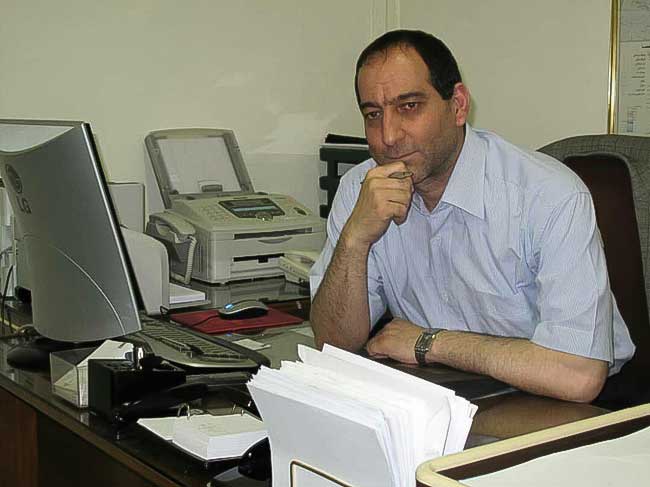
reference
1- Holland, Steve; Shalal, Andrea; Landay, Jonathan (8 April 2021). Paul, Franklin; Dunham, Will (ed).
2- Kramer, Andrew E. (9 April 2021).
3-20 April 2021. Retrieved 19 February 2022. Photographs by Maxar Technologies.
4- 21 April 2021. Retrieved 19 February 2022.
5- Bielieskov, Mykola (21 September 2021). "The Russian and Ukrainian Spring 2021 War Scare". csis.org. Photo by Dimitar Dilkoff. Center for Strategic and International Studies. Archived from the original on 25 November 2021. Retrieved 22 January 2022. Ukrainian estimates provided to the OSCE in June 2021 show that only 12,000 Russian forces were removed from the border, and the rest remain in place.
6- Troianovski, Anton; Sanger, David E. (16 January 2022). "Russia Issues Subtle Threats More Far-Reaching Than a Ukraine Invasion". The New York Times. Photo by Associated Press. Vienna. ISSN 0362-4331. Retrieved 27 January 2022. "No one expected much progress from this past week's diplomatic marathon to defuse the security crisis Russia has ignited in Eastern Europe by surrounding Ukraine on three sides with 100,000 troops and then, by the White House's accounting, sending in saboteurs to create a pretext for invasion."
7-Kiely, Eugene; Farley, Robert (24 February 2022). "Russian Rhetoric Ahead of Attack Against Ukraine: Deny, Deflect, Mislead". FactCheck.org. Retrieved 27 February 2022.
8-Taylor, Adam (24 February 2022). "Russia's attack on Ukraine came after months of denials it would attack". The Washington Post. Archived from the original on 24 February 2022. Retrieved 27 February 2022.
9- Crowley, Michael; Wong, Edward (29 January 2022). "U.S. Sanctions Aimed at Russia Could Take a Wide Toll". The New York Times. Washington D.C. Retrieved 15 February 2022. And the "swift and severe" response that U.S. officials have promised could roil major economies, particularly those in Europe, and even threaten the stability of the global financial system, analysts say.
10- Crowley, Michael; Wong, Edward (29 January 2022). "U.S. Sanctions Aimed at Russia Could Take a Wide Toll". The New York Times. Washington D.C. Retrieved 15 February 2022. And the "swift and severe" response that U.S. officials have promised could roil major economies, particularly those in Europe, and even threaten the stability of the global financial system, analysts say.
11-Sanger, David E. (10 January 2022). "In U.S.-Russia Talks, How Far Can Putin Turn Back the Clock?". The New York Times. Washington D.C. ISSN 0362-4331. Archived from the original on 19 January 2022. Retrieved 21 January 2022. The lesson of the past year may be that while the Cold War is long over, Cold War-like behavior lives on. And in the three decades since the dissolution of the Soviet Union, the tension between the world's two principal nuclear adversaries has never been worse — making the pathway to a peaceful de-escalation harder to discern
12-Isachenkov, Vladimir (26 December 2021). "Putin to mull options if West refuses guarantees on Ukraine". AP News. Moscow: Associated Press. Archived from the original on 22 January 2022. Retrieved 22 January 2022.
13-Reynolds, Maura (28 February 2022). "'Yes, He Would': Fiona Hill on Putin and Nukes". Politico. Retrieved 5 March 2022.
14- Hernandez, Joe (22 February 2022). "Why Luhansk and Donetsk are key to understanding the latest escalation in Ukraine". NPR. Retrieved 28 February 2022.
15- Roth, Andrew; Borger, Julian (21 February 2022). "Ukraine: Putin orders troops into Donetsk and Luhansk on 'peacekeeping duties'". The Guardian. Retrieved 21 February 2022.
16-Rainford, Sarah (21 February 2022). "Russia recognizes Ukraine separatist regions as independent states". BBC. Retrieved 21 February 2022.
17- Путин: Россия признала "ДНР" и "ЛНР" в границах, закрепленных в их конституциях [Putin: Russia has recognized "DPR" and "LPR" within the boundaries enshrined in their constitutions]. Novaya Gazeta (in Russian). 22 February 2022. Retrieved 23 February 2022.
18- Минских соглашений теперь не существует, заявил Путин [Minsk agreements no longer exist, Putin says] (in Russian). RIA Novosti. 22 February 2022. Retrieved 22 February 2022.
19-Совфед дал согласие на использование ВС за пределами страны [The Federation Council agreed to the use of aircraft outside the country] (in Russian). RIA Novosti. 22 February 2022. Retrieved 22 February 2022.
20- Kirby, Jen (28 February 2022). "Putin's invasion of Ukraine, explained". Vox. Retrieved 28 February 2022.
21- Conflict in Ukraine". Global Conflict Tracker. Council on Foreign Relations. 28 February 2022. Retrieved 28 February 2022.
22- "Conflict in Ukraine". Global Conflict Tracker. Council on Foreign Relations. 28 February 2022. Retrieved 28 February 2022.
23- "Istanbul Document 1999". Organization for Security and Co-operation in Europe. 19 November 1999. Retrieved 21 July 2015.
24-Harding, Luke; Borger, Julian; Chrisafis, Angelique (2 April 2008). "Bush-Putin row grows as pact pushes east". The Guardian. Moscow; Bucharest; Paris. Retrieved 15 February 2022.
25-Dawar, Anil (4 April 2008). "Putin warns Nato over expansion". The Guardian. Retrieved 15 February 2022. "The Russian president, Vladimir Putin, today repeated his warning that Moscow would view any attempt to expand NATO to its borders as a 'direct threat."
26-Chifu, Iulian; Nantoi, Oazu; Sushko, Oleksandr (2009). "Russia–Georgia War of August 2008: Ukrainian Approach" (PDF). The Russian Georgian War: A trilateral cognitive institutional approach of the crisis decision-making process. Bucharest: Editura Curtea Veche. p. 181. ISBN 978-973-1983-19-6. Archived (PDF) from the original on 30 September 2018. Retrieved 21 February 2016. "Conceptually, Russia sees Ukraine within the sphere of own 'privileged interests'; in fact, it means a modernized version of Brezhnev's doctrine of 'limited sovereignty', realized after the occupation of Czechoslovakia in 1968."
27-Wiegrefe, Klaus (15 February 2022). "NATO's Eastward Expansion: Is Vladimir Putin Right?". Der Spiegel. ISSN 2195-1349. Retrieved 28 February 2022.
28-Remarks concerning Ukraine by Vladimir Putin. Putin makes a statement following the Security Council meeting on Donbass recognition on YouTube. RT. 21 February 2022. Minutes 41:17–42:58. "Because of the openness and goodwill, our goodwill, relations between Russia and the West were at a high level. Russia fulfilled all its obligations, we withdrew troops from Germany, from the central and European countries, and it made a huge contribution in overcoming the legacy of the Cold War. We consistently suggested all kinds of cooperation, including in the form of the NATO council and OECD. ... [When I asked], how would America see Russia joining NATO? ... How did Americans really look at this possibility? You can see it in their practical steps, in regard for a country: Open support of the terrorists in North Caucasus; Ignoring our demands and our concerns in the security area; Withdrawing from the arms treaties, and so on and so forth. It still begs the question, why? Why did they do that? What for? Okay, you don't want to see a friend in us, an ally in us. But why do you want to make an enemy out of us?"
30-Sindelar, Daisy (23 February 2014). "Was Yanukovych's Ouster Constitutional?". rferl.org. Radio Free Europe/Radio Liberty. Archived from the original on 29 July 2020. Retrieved 25 February 2014.
31- Feffer, John (14 March 2014). "Who Are These 'People,' Anyway?". HuffPost. BuzzFeed. Archived from the original on 18 March 2014. Retrieved 17 March 2014. "At that point, his own party abandoned him and called for a vote to take place. Parliament then voted to remove Yanukovych from office by a margin of 328 to 0"."
32-Polityuk, Pavel; Robinson, Matt; Baczynska, Gabriela; Goettig, Marcin; Graff, Peter; Elgood, Giles (22 February 2014). Roche, Andrew (ed.). "Ukraine parliament removes Yanukovich, who flees Kiev in "coup"". Reuters. Kyiv: Thomson Corporation. Archived from the original on 9 June 2016. Retrieved 18 November 2020. "Underscoring Ukraine's regional divisions, leaders of Russian-speaking eastern provinces loyal to Yanukovich voted to challenge anti-Yanukovich steps by the central parliament."
33-Fisher, Max (3 September 2014). "Everything you need to know about the Ukraine crisis". Vox. Vox Media. Archived from the original on 22 January 2022. Retrieved 24 January 2022.
34-Mitrokhin, Nikolay (2015). "Infiltration, Instruction, Invasion: Russia's War in the Donbass" (PDF). Journal of Soviet and Post-Soviet Politics and Society. 1 (1): 220–221.
35-Wilson, Andrew (20 April 2016). "The Donbas in 2014: Explaining Civil Conflict Perhaps, but not Civil War". Europe-Asia Studies. 68 (4): 631–652. doi:10.1080/09668136.2016.1176994. ISSN 0966-8136. S2CID 148334453.
36-Pomerantsev, Peter (7 August 2019). "The Counteroffensive Against Conspiracy Theories Has Begun". The Antlantic. Retrieved 26 June 2020.
"37-Remembering Ukraine's Revolution of Dignity". openDemocracy. Retrieved 26 June 2020.
38-Kuzio, Taras (2017). Putin's war against Ukraine : revolution, nationalism, and crime. North Charleston, South Carolina: CreateSpace Independent Publishing Platform. p. 90. ISBN 978-1-5432-8586-4. OCLC 982267595.
39-Grytsenko, Oksana; Vlasova, Anastasia (12 April 2014). "Armed pro-Russian insurgents in Luhansk say they are ready for police raid". Kyiv Post. Luhansk: Businessgroup LLC. Archived from the original on 12 April 2014. Retrieved 1 February 2022. "... their top aim is federalization of the country through all-Ukrainian referendum, one step from secession from the nation. 'It should be a federation in the borders of Ukraine, but with the right to separate if people demand this,' Kariakin said, confident that 85 percent of people in Luhansk Oblast, Ukraine's seventh most populous with 2.2 million people, support him."
40-Ragozin, Leonid (16 March 2019). "Annexation of Crimea: A masterclass in political manipulation". aljazeera.com. Riga: Al Jazeera. Archived from the original on 8 May 2020. Retrieved 24 January 2022. "Putin framed the invasion and eventual annexation of Crimea as an act of salvation rather than a clear violation of international law and turned a revolution which could have marked the end of his rule into a much-needed popularity booster…"
"-War in Europe: Responding to Russia's Invasion of Ukraine". www.crisisgroup.org. 24 February 2022.
-Tsvetkova, Maria (21 July 2015). "Ceasefire brings limited respite for east Ukrainians". Euronews. Reuters. Archived from the original on 25 July 2015. Retrieved 26 July 2015.
41- "Kremlin defends Russian military buildup on Ukraine border". The Guardian. 9 April 2021.
"42- Zelenskiy: Russian passports in Donbass are a step towards 'annexation'". Reuters. 20 May 2021.
43-Duggal, Hanna (25 January 2022). "Infographic: Military capabilities of Russia and Ukraine". aljazeera.com. Al Jazeera. Retrieved 15 February 2022.
"44-Relations with Ukraine". NATO. NATO. 11 January 2020. Retrieved 15 February 2022. "In September 2020, President Volodymyr Zelenskyy approved Ukraine's new National Security Strategy, which provides for the development of the distinctive partnership with NATO with the aim of membership in NATO".
45-Getmanchuk, Alyona (30 September 2020). "Russia as aggressor, NATO as objective: Ukraine's new National Security Strategy". atlanticcouncil.org. Atlantic Council. Retrieved 15 February 2022.
"Zelensky enacts strategy for de-occupation and reintegration of Crimea". Ukrinform. Government of Ukraine. 24 March 2021. Retrieved 15 February 2022. "Decree No. 117/2021 of March 24 on enactment of the relevant decision of the National Security and Defense Council was published on the website of the Head of State".
46- Putin, Vladimir (12 July 2021). "Article by Vladimir Putin 'On the Historical Unity of Russians and Ukrainians'". The Kremlin. Government of Russia. Archived from the original on 25 January 2021. Retrieved 1 February 2022. During the recent Direct Line, when I was asked about Russian-Ukrainian relations, I said that Russians and Ukrainians were one people – a single whole.
47- Snyder, Timothy D. (18 January 2022). "How to think about war in Ukraine". Thinking about... (newsletter). Substack. Archived from the original on 19 January 2022. Retrieved 25 January 2021. Historically speaking, the idea that a dictator in another country decides who is a nation and who is not is known as imperialism.
48- Lucas, Edward (15 September 2020). "Why Putin's history essay requires a rewrite". The Times. Archived from the original on 25 January 2022. Retrieved 25 January 2022.
49- Roth, Andrew (7 December 2021). "Putin's Ukraine rhetoric driven by distorted view of neighbor". The Guardian. Moscow. Archived from the original on 7 December 2021. Retrieved 25 January 2021. But that fear has gone hand-in-hand with chauvinistic bluster that indicates Moscow has a distorted view of modern Ukraine and the goals it wants to achieve there.
- Dickinson, Peter; Haring, Melinda; Lubkivsky, Danylo; Motyl, Alexander; Whitmore, Brian; Goncharenko, Oleksiy; Fedchenko, Yevhen; Bonner, Brian; Kuzio, Taras (15 July 2021). "Putin's new Ukraine essay reveals imperial ambitions". Atlantic Council. Archived from the original on 15 July 2021. Retrieved 25 January 2021. Vladimir Putin's inaccurate and distorted claims are neither new nor surprising. They are just the latest example of gaslighting by the Kremlin leader.
- Wilson, Andrew (23 December 2021). "Russia and Ukraine: 'One People' as Putin Claims?". Royal United Services Institute. Archived from the original on 24 January 2022. Retrieved 25 January 2022. Putin's key trope is that Ukrainians and Russians are 'one people', and he calls them both 'Russian'. He starts with a myth of common origin: 'Russians, Ukrainians and Belarusians are all descendants of Ancient Rus', which was the largest state in Europe' from the 9th–13th centuries AD.
50- Taylor, Paul (23 November 2021). "Ukraine: NATO's original sin". Politico. Axel Springer SE. Retrieved 1 February 2022. "The result heightened Kremlin's fears of encirclement and of losing the strategic depth that enabled Russia to prevail over Western invaders twice ... no amount of assurances that NATO is not a threat to Russia, that its purpose is purely defensive or that none of its weapons would ever be used except in response to an attack could assuage Moscow".
-Guyer, Jonathan (27 January 2022). "How America's NATO expansion obsession plays into the Ukraine crisis". Vox. Vox Media. Retrieved 20 February 2022. "To the West, it's a statement of autonomy; to Russia, it's a threat."
-Lee, Matthew; Cook, Lorne (7 January 2022). "US, NATO rule out halt to expansion, reject Russian demands". AP News. Associated Press. Archived from the original on 24 January 2022. Retrieved 24 January 2022.
51-Agencies (13 September 2014). "Putin wants to destroy Ukraine and restore Soviet Union, says Yatseniuk". The Guardian. Archived from the original on 25 January 2022. Retrieved 25 January 2022.
-Bullough, Oliver (28 March 2014). "Vladimir Putin: The rebuilding of 'Soviet' Russia". BBC. Archived from the original on 24 January 2022. Retrieved 25 January 2022. "'He does not understand that the collapse of the Soviet system was predetermined, therefore he believes his mission is to restore the Soviet system as soon as possible,' he (Vladimir Bukovsky) says".
-Rubin, Trudy (11 January 2022). "Putin wants to reestablish the Russian empire. Can NATO stop him without war?". The Philadelphia Inquirer. Interstate General Media. Archived from the original on 25 January 2022. Retrieved 25 January 2022. "He wants to rebuild the former Soviet sphere of influence that extended from Central Europe through Central Asia, and views this effort as a restoration of Russian greatness".
"Lithuanian president: Russia's attempts to create 'zones of influence' will not be tolerated". LRT English. Lithuanian National Radio and Television. Baltic News Service. 20 December 2021. Archived from the original on 25 January 2022. Retrieved 25 January 2022. "Photograph by Office of the Lithuanian President".
- Wiktor, Szary; Sobczak, Pawel; Emmott, Robin; Sytas, Andrius; Muller, Robert; Dagenborg, Joachim (20 June 2016). Boulton, Ralph (ed.). "In push for equal NATO status, Poland asks for flashpoint troops". Reuters. Brussels, Prague, Vilnius, Trondheim: Thomson Corporation. Archived from the original on 25 January 2022. Retrieved 25 January 2022.
دکتر اسدالله افشار
اشتراک گذاری: لینک کوتاه: https://www.nikru.ir/p/65597- پربازدیدترین ها
- شبکه های اجتماعی
- بازار
- عید فطر؛ عيد شکرگزاری از حق تعالیجنگ شش ماهه غزه؛ مرگ سیاسی صهیونیزم جهانیانس ائمه معصومین(ع) و اولیای خدا با قرآنپیشگیری بهترین و عاقلانه ترین راه مبارزه با اعتیادعملیات ایران؛ تحقیر هوشمندانه اسرائیلاسرائیل و غرب؛ بازنده اصلی عملیات وعده صادقروحیه دادن آمریکا به اسرائیلیها+ فیلماصلاح ساختار بودجهمادران غزه، مربیان جهانینگرانی اروپا از بازگشت ترامپ به کاخ سفیدضرورتهای تقابل با تروریسم!عصر رقابت قدرتهای بزرگ؛ مقابله دشمنان باقدرت آمریکارزق حقیقیِ ماه رمضان چیست؟ارتش آمریکا در حال آموزش و تمرین با نیروهای گروه تروریستی پککاعتراف کارشناسان شبکه سلطنتطلب به ناتوانی اسرائیل در جنگ با ایران +فیلمارزشگذاری بزرگترین مجتمع تجاری ایران توسط مرکز کارشناسان قوه قضاییهمزایای راهبردی کریدور شمال - جنوب برای افغانستانکارشناس پای ثابت اینترنشنال: اگر اسرائیل نابود شود، زبانم لال!+فیلمفاجعهای که اسرائیل رقم زده در تاریخ مدرن بیسابقه است!فاجعهای که اسرائیل در غزه رقم زده در تاریخ مدرن بی سابقه است!+ فیلم
- حرکت خوف بلاگر ایرانی علیه یک اسراییلیچرا باید پاسخ اسرائیل را در محاسبات آورد و احتمالات چیست؟موج جدید اسلامستیزی در بریتانیا؛ شما حق ندارید در مدرسه نماز بخوانید!چالش نخست وزیر بریتانیا درپی عدم محکومیت حمله اسرائیل به کنسولگری ایران+ فیلمپاسخ سفیر سابق انگلستان به ایرانستیزان + عکسبی شرفی به سبک سفیر اسرائیل در مادرید +فیلمتصاویری از وضعیت اردوگاه النصیرات در شمال نوار غزهنماینده پارلمان انگلیس: نتانیاهو از ترس از سیلی ایران مانند موش در پناهگاه مخفی شده بود+ فیلمچرا راه دور میروی؟ وصل اینجاست!چرا میگوییم سیلی ایران به اسرائیل خیرهکننده است؟+ فیلمشاخه های اساسی تحولات فلسطین که زیاد به آن پرداخته نشدحامیان فلسطین خطاب به رئیس کمیسیون اتحادیه اروپا: شما یک جنایتکار هستید+ فیلموضعیت پرتنش خاورمیانه بدون تغییربَد و بَدتر برای اسرائیلجنگ غزه در چه وضعی است؟فکر و ذکر بایدن مقابله با چین در جنگ تجاری استپاسخ اسرائیل چگونه خواهد بود؟جنگ با حزب الله؛ جنگی که موجودیت اسرائیل را به خطر می اندازدحمله ایران به اسرائیل؛ یک دلگرمی برای جبهه مقاومت+ فیلماولین پیام السنوار بعد از حمله اسرائیل به غزه، چه بود؟ فیلم
- برای دیدن قیمت طلا، سکه و ارز، کلیک کنید
- آخرین اخبار
اقدامات نیروی زمینی سپاه برای کمک به سیلزدگان در سیستان و بلوچستان
ایرانیان فردا در حمایت از عملیات «وعده صادق» راهپیمایی میکنند
مسئولان قضایی در جهت تحکیم آرامش و امنیت مردم تدابیر مقتضی را اتخاذ کنند
برنامه عملیاتی تحقق شعار سال به تصویب هیات وزیران رسید
عضویت فلسطین در سازمان ملل را به رسمیت میشناسیم
درخواست روسیه از شورای امنیت برای بررسی فوری تحریم اسرائیل
عملیات وعده صادق توانمندی ایران را در یک جنگ ترکیبی نشان داد
هشتهزار مگاوات برق برای جبران ناترازی وارد مدار شده است
رگبار و وزش باد شدید در ۴ استان کشور/ دریای عمان امروز مواج است
ارتش امروز با حفظ آمادگی و اقتدار در کنار مردم است
قیمت تضمینی 12 محصول کشاورزی اعلام شد
تمام مزارع گندم گلستان درگیر بیماری شد
حزبالله لبنان پادگان اسرائیلی برانیت را هدف قرار داد
شکاف درآمدی در ایران به کمترین رقمِ ۸ ساله رسید
بازرسان آژانس فعالیت خود را در ایران از سر گرفتهاند
عملیات وعده صادق هیمنه رژیم صهیونیستی را فروریخت/ امروز دیگر سخن از گزینه نظامی علیه ملت ایران نیست
بایدن تحریمهای نفتی ایران را تشدید نمیکند
هشدار بارشهای شدید در ۵ استان
اسرائیل و غرب؛ بازنده اصلی عملیات وعده صادق
نقش رئیسجمهور در پیوند میدان و دیپلماسی در عملیات وعده صادق بینظیر بود
عملیات وعده صادق اسرائیل را تحقیر کرد
در عملیات ایران مهمترین پایگاه هوایی اسراییل هدف قرار گرفت
خریدوفروش غیرقانونی امتیاز نهضت ملی مسکن با نرخهای نجومی
کوچکترین اقدام علیه منافع ایران با پاسخ سهمگین مواجه خواهد شد
پیگیری برای اجرای اعتراض اینترنتی به جرائم رانندگی/ افزایش مبلغ جریمهها هنوز ابلاغ نشده است
چرا سکه در مرکز مبادله به نرخ حاشیه بازار حراج میشود؟
بارش شدید و سیلاب در نوار جنوبی
دنیا برای این عملیات در شوک بزرگی فرو رفته است
بازار مرغ در معرض تهدید گرانفروشی نهاده
دستور جدید بانک مرکزی به بانکها برای پرداخت تسهیلات خرد
اقتصاد اسرائیل تاب تحمل هزینههای جنگ جدید ندارد
ایران به دنبال تشدید تنش در منطقه نیست
رئیسجمهور ایران سوم اردیبهشت به اسلامآباد سفر میکند
دستورالعمل دانشگاه آزاد درباره حجاب ابلاغ شد
اسراییل میداند تلافی دوم ما چه خواهد بود
رژیم صهیونیستی اقدام جدیدی علیه ایران صورت دهد، با پاسخ بسیار شدیدی مواجه خواهد شد
جلسه کابینه جنگ رژیم صهیونیستی بینتیجه پایان یافت
اظهار بُهت رسانههای صهیونیستی از قدرت پاسخ تنبیهی ایران
عملیات ایران؛ تحقیر هوشمندانه اسرائیل
دستگیری متهمان زورگیری در اتوبان صدر
توزیع بنزین کشور طبق روال عادی ادامه دارد
رژیم صهیونیستی حمله کند از مبدا ایران مورد تهاجم متقابل قرار میگیرد
- مذاکرات وین و عناد آمریکاییان
